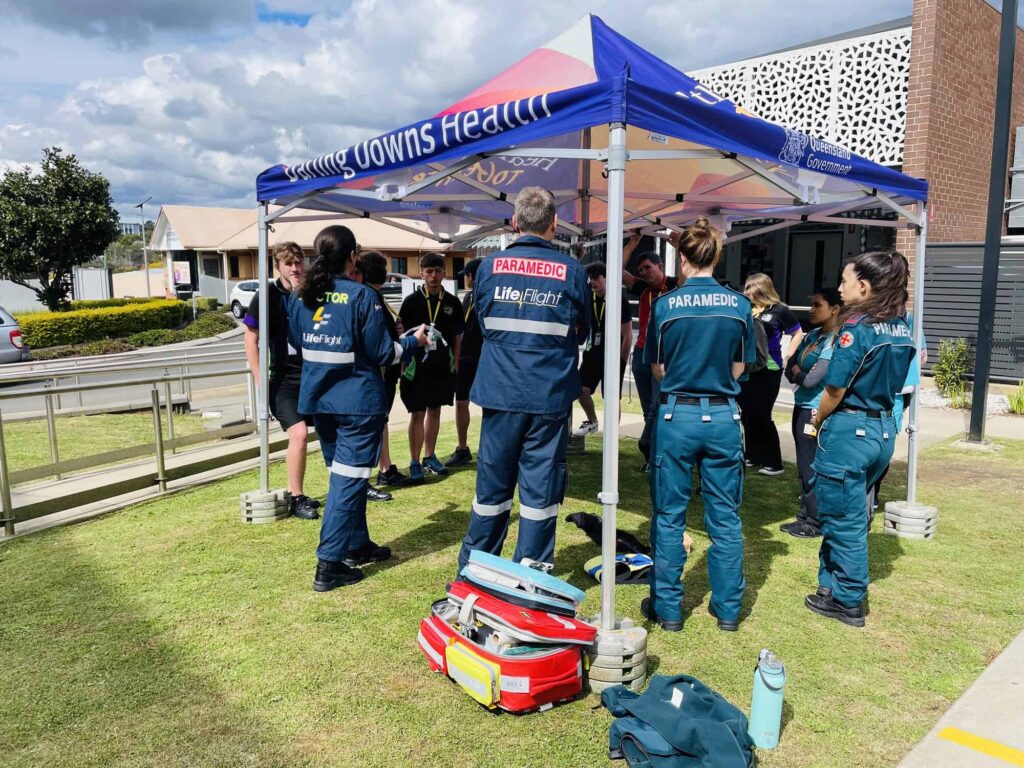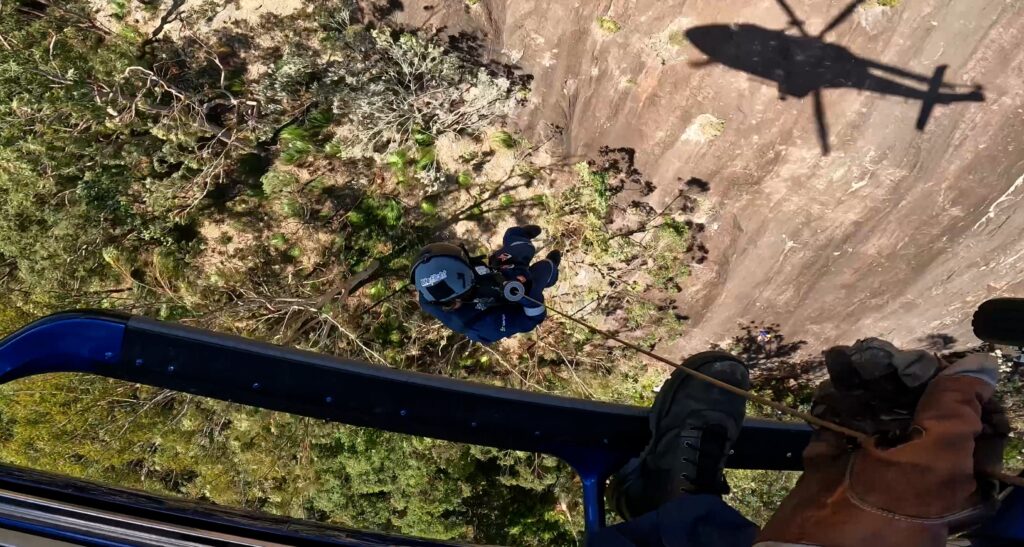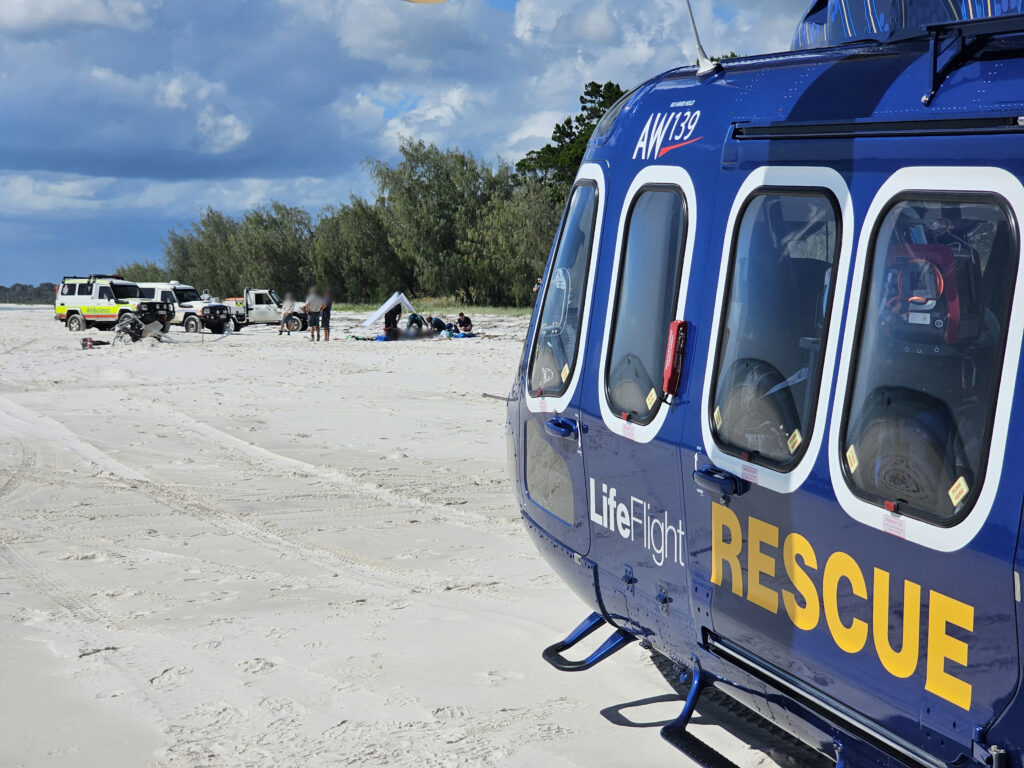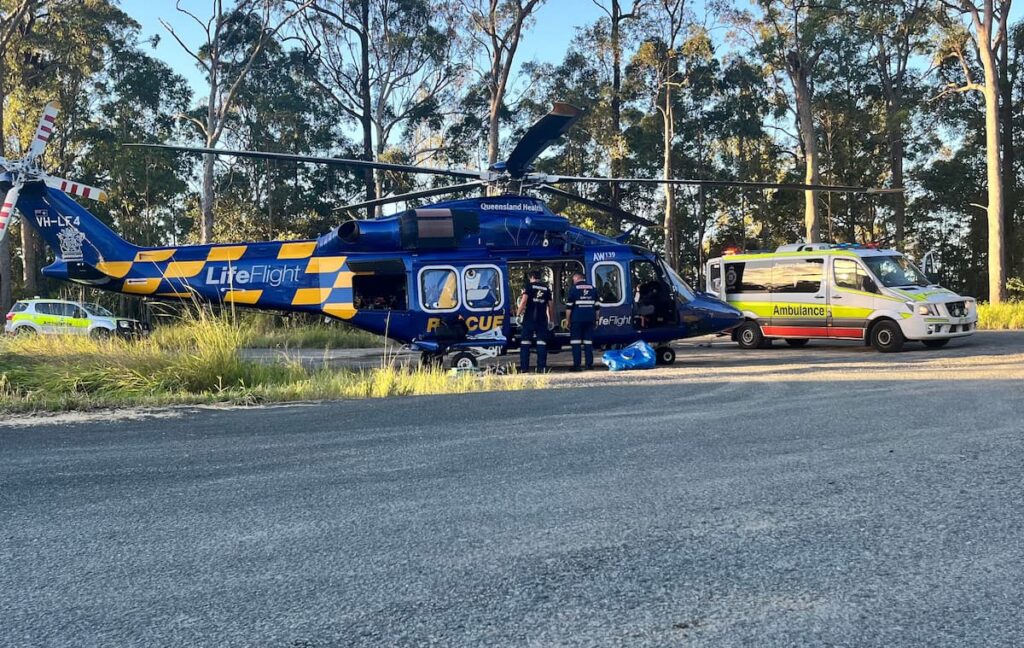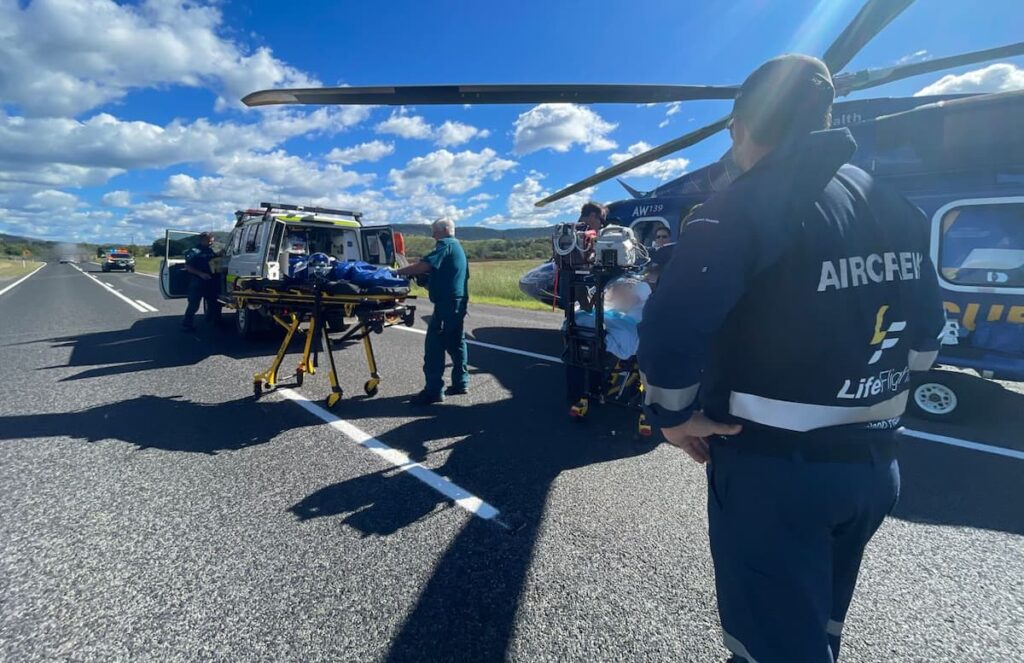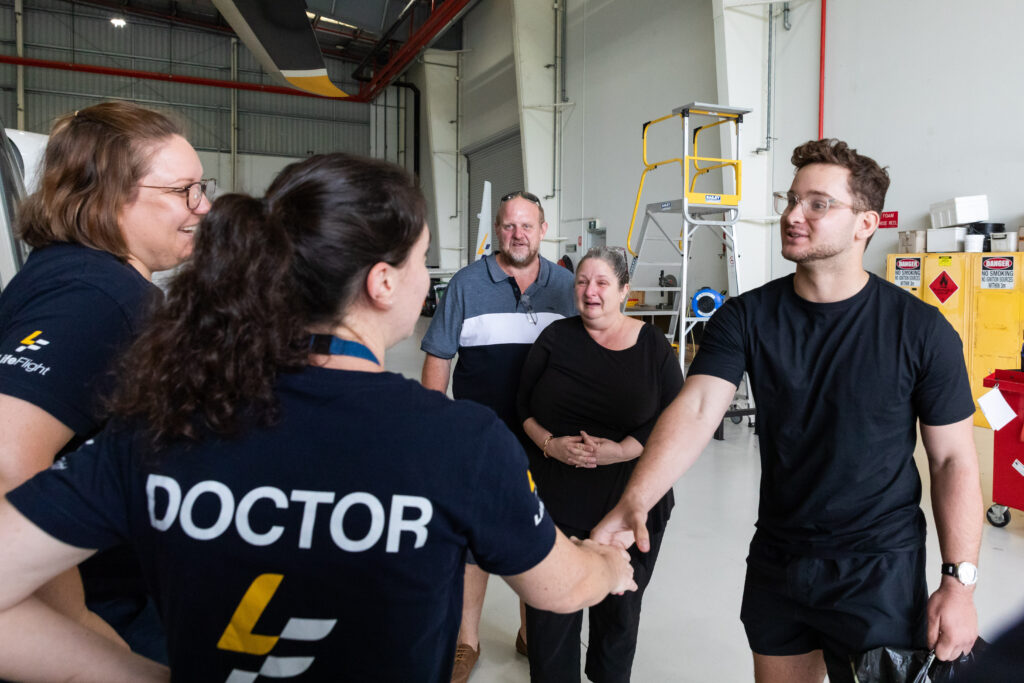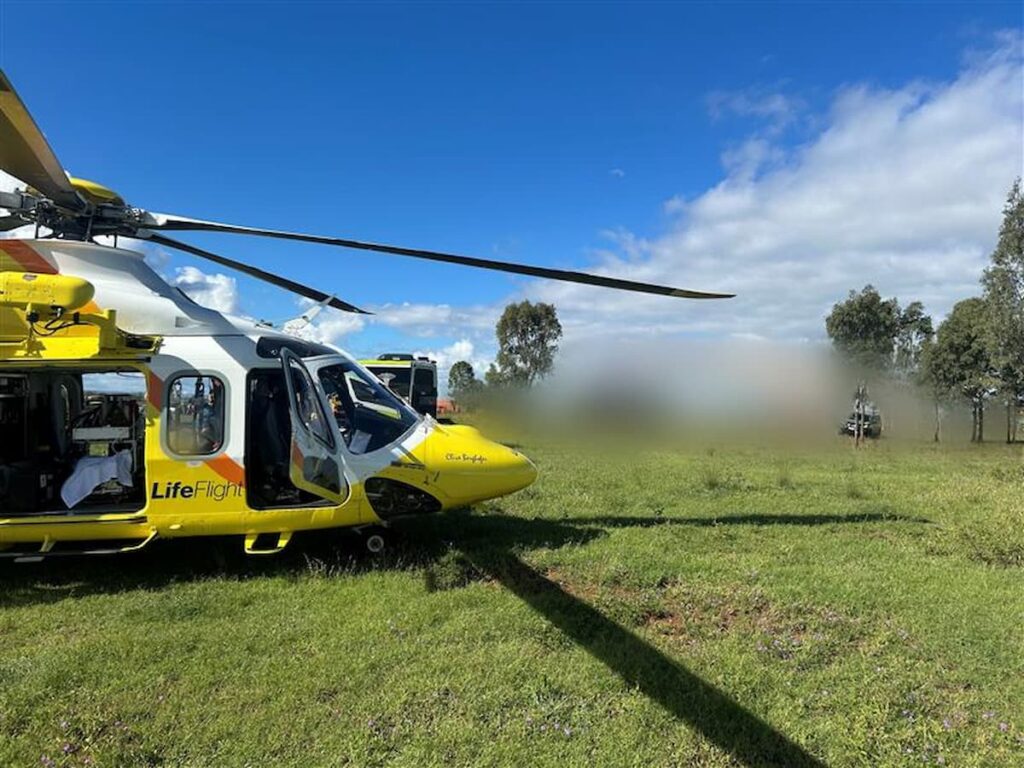LifeFlight past patient Zach Nightingale is telling the kind of story that will save the lives of others.
He is sitting in front of a room of 15-18-year-olds who are all wondering why he’s only got one leg.
Even though it’s the end of a long day, this Toowoomba trauma survivor has their full attention.
“I lost my right leg six years ago when I crashed a motorcycle the day I was getting tested for my open licence,” Zach tells them.
“97 per cent of my right hip bone exploded on impact, my leg ended up 10 metres away, a stranger reached in and pinched my severed artery which saved my life.”
Zach explains how he ignored his in-built warning system on December 16, 2017, a choice he forever regrets.
“I’d worked late the night before and only had a few hours’ sleep and as I tried to wake up for the 5am motorcycle ride I was ‘umming and ahhing’ about whether I should even go.
“And you know that little voice inside of you that screams at you to warn you that something isn’t a good idea, well I ignored that voice.
“I wish I had of listened to it. That voice has your best interest at heart – you should probably always listen to it.”
A LifeFlight aeromedical crew flew Zach and his leg (packed in ice) to Princess Alexandra Hospital, but surgeons were unable to reattach it.
“I’m here to encourage you to really think about the choices you make every day,” he said.
Choices – we make them in seconds, but the consequences can last a lifetime.
It’s a hard truth LifeFlight critical care Doctor Sarah Ayles knows all too well.
She’s seen her fair share of young patients in the Toowoomba and Princess Alexandra Hospitals’ emergency departments recovering from violent physical injury.
Now she sees them in paddocks and the side of the road – at the scene of their trauma – as part of the LifeFlight aeromedical team at Toowoomba, which she recently joined.
“Our LifeFlight teams right across Queensland fly to trauma-related incidents every single day and bring patients back to Queensland hospitals,” Dr Ayles said.
“Too many of these missions are for young people who have experienced traumatic physical injuries often as a result of poor choices which will impact them for the remainder of their lives.”
Dr Ayles has joined Zach Nightingale to chat with the Prevent Alcohol and Risk Related Trauma in Youth (PARTY) program students alongside paramedics and hospital-based doctors and nurses.
“If even one conversation we have with a young person today, prevents one trauma related injury or death, it’s always worth our time,” Dr Ayles said.
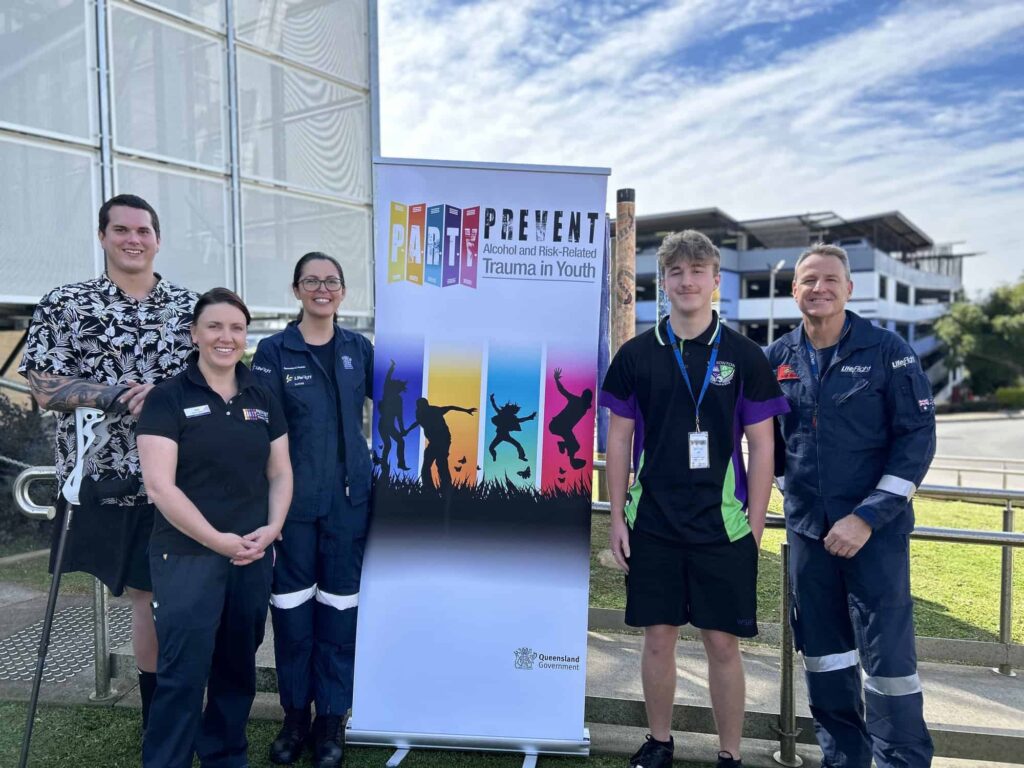
Darling Downs PARTY program coordinator and Toowoomba Hospital Emergency Department acting nurse unit manager Dani Williams says partnering with LifeFlight was an excellent fit.
“The LifeFlight aeromedical team offers a unique pre-hospital experience,” Ms Williams says. “They tend to respond to the worst kind of traumas.”
Ms Williams is talking about the kind of violent physical injury caused by transported-related crashes, suicide attempts, falls and assaults and poisoning – often the result of drugs and alcohol.
As well as the conversations with these emergency workers and trauma survivors like Zach, the PARTY program includes interactive presentations and simulated clinical scenarios.
The goal is to help young people better understand the consequences of alcohol and risk-related trauma.
Ms Williams says the students interact with clinicians from 10 different departments including the emergency department, intensive care and trauma wards – even visiting the morgue viewing room.
These experiences help the teenagers better understand what it’s like to be a trauma patient.
“Every year in Australia 75,000 young people aged 15-24 end up in hospital because of trauma,” she says.
“And 70 per cent of young people will either be directly involved in trauma or impacted by it through a ripple effect.
“We know that trauma doesn’t just involve one person or that person’s family, there is a ripple effect in schools and sporting clubs and hospitals and in the community. Whole towns get caught up when young people experience trauma. And that doesn’t go away.”
Ms Williams said the PARTY program ran fortnightly at the hospital during school terms.
“Trauma doesn’t just happen,” Ms Williams says.
“Trauma happens because of the choices people make. At PARTY we don’t preach to the kids. We don’t tell them to not drink alcohol. We don’t tell them to not do drugs.
“We aren’t standing in front of them making their decisions for them. We challenge the students with situations to identify high risk situations. And then we challenge the students about their decision-making process.
“Our motto is ‘think twice, live once’.”
The PARTY program, funded through the Queensland Department of Transport’s Road Safety Scheme, is currently seeking additional funding so it can run more than 12 programs a year.
